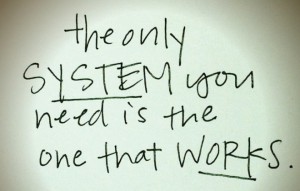Rebecca Pott Fitton is not a
poet. She even says so in the opening lines of the first poem in her book Wave Rider: A Poetic Journey From Abuse to
Wholeness. After reading these heartfelt and honest poems, one might agree with Rebecca's assessment of herself.
She is not a poet, not in the classic or traditional sense. She is not
Keats, Shelley, or Dickinson. But that does not mean the words she has offered
in this collection are to be dismissed. What Rebecca gives us is a raw and
authentic look inside the soul of a woman who has recovered from the hell of
sexual abuse and neglect. An old-school English professor might not consider
her a poet, but her words are as authentic as any critically acclaimed bard and
that is what matters most. Because Rebecca is like all of us, struggling to find
her way. This alone allows her the right to write these poems, and worthy poems they are.
There are four
sections in Wave Rider: Darkness, Between, Spaciousness, and Wave Rider. Through each there
is palpable clarity, transition, or redemption. She makes it clear in the book’s
Introduction that the term “Wave Rider” is a metaphor, the author riding the
waves and nearly being tugged under by the rough current. And in many ways the
reader of this book rides along with her, holding on and praying she’ll make it
to safe waters. Each poem is an incremental moment in her rebirth and an act of
growth.
In the poem “Anxiety,”
Rebecca writes:
This Earth walk is
difficult for all human spirits.
I am so weary of having to
be careful, judicious,
needing to protect myself
from myself.
The
poem appears as a call for renewal and sets the reader up for the
resurrection.
In
the section Between, Rebecca makes it clear in the poem “Here and Now” that
writing is her medicine, her healing. Writing verse is a form of therapy.
I write because no one is
here to listen.
I write when I don’t want
to forget.
I write when my mind spins.
And
with the poem “Surrender,” the reader begins to clearly see her personal revolution.
It is time to be.
I have no more energy or
desire for doing.
I have done enough outside
of myself.
It is time for my own
creation.
There
is despair and heartache, but there is also playfulness in these poems, a sort
of truth in the world’s goodness and how it can be discovered or unearthed or
rehabilitated, an element of Rebecca’s work that is necessary here in order to
keep from burying the reader in the difficult realities of what she has faced.
The poem “Playbook” works as the light in the dark.
With polka dots flying from
my coat
Striped pants billowing in
the wind
With high-top sneakers on
my feet
And a hat upon my head
I am ready to greet the
quantum
As my teacher said.
And
if you believe a place can be transforming, then you’ll see the relevance of
“Coming to Santa Fe.”
You come to Santa Fe
to breathe the air
to see the beauty
to come alive.
To
find merit and to appreciate Wave Rider,
one does not have to have experienced Rebecca’s arduous journey. One only needs
to be sensitive to it, to be keen to the power of reflection and perseverance.
All of us have had challenges to overcome and each reader can find inspiration
in Rebecca’s words, maybe not in every single syllable, but in many because as
humans we all need restoration and one way to celebrate it is to offer a
passage to redemption through the power of verse.
This is from Rebecca’s final poem “Women of Now.”
We carry the waters that
transform
darkness into light.
We are the alchemists.
Wave Rider: A Poetic Journey From Abuse to Wholeness by Rebecca Pott Fitton from Terra Nova Books.


















